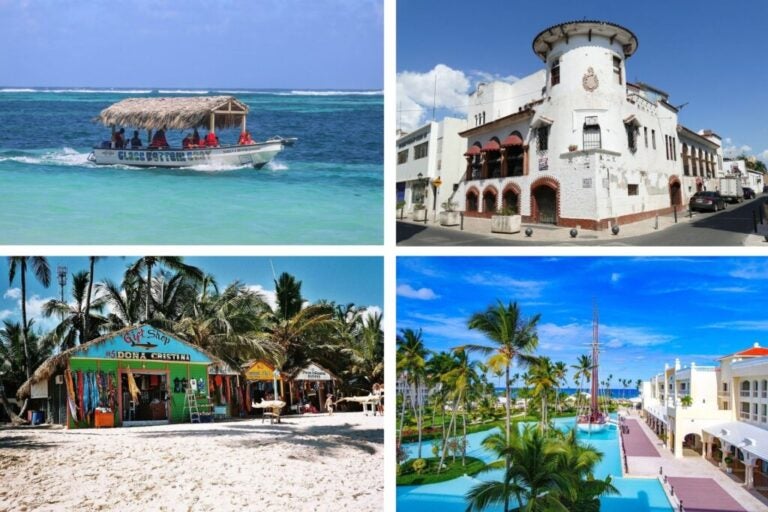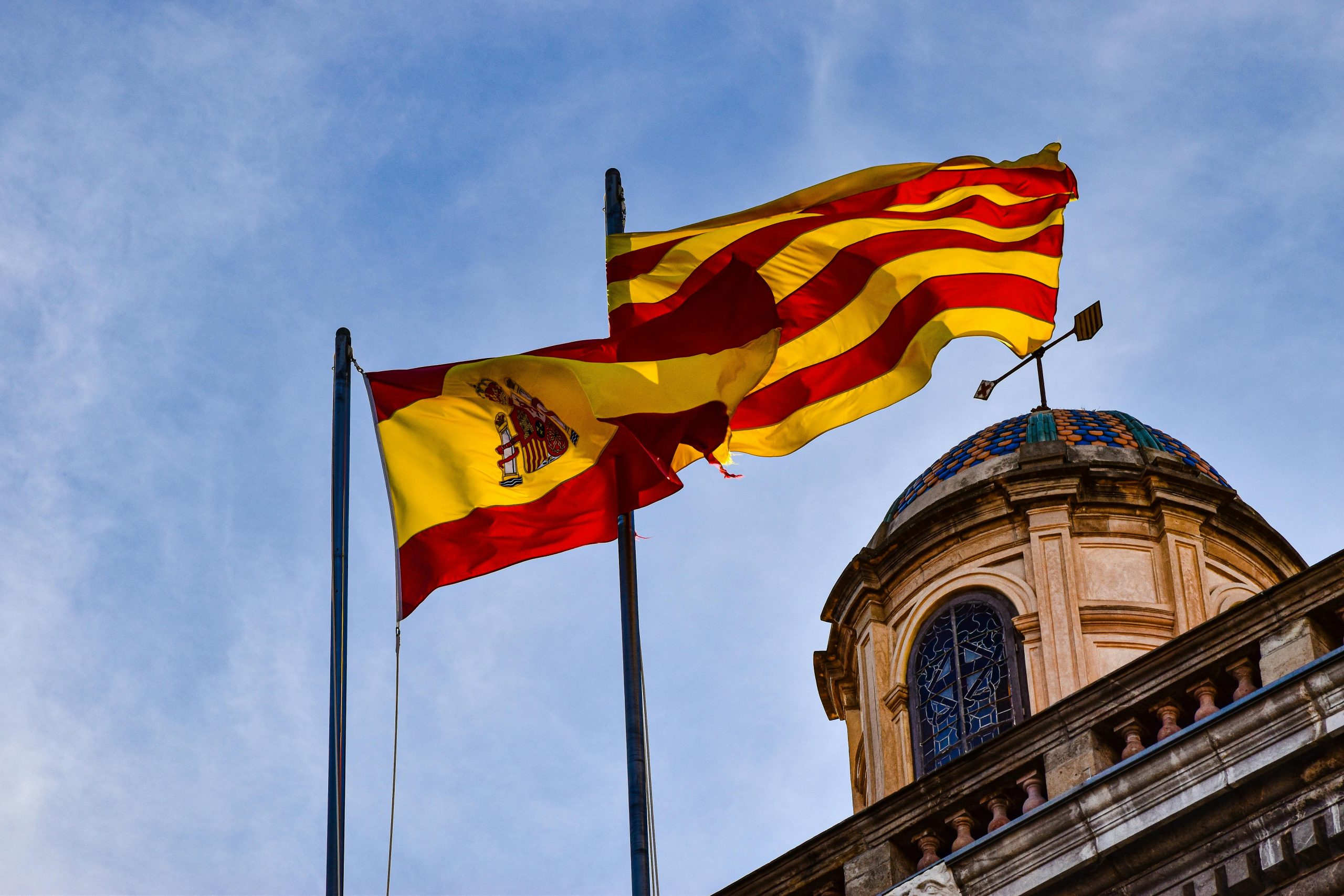Taxes in the Dominican Republic: Which should I pay?
The taxes in the Dominican Republic you need to know for individuals and businesses. Live in this tropical paradise!
Are you thinking of living in this Caribbean paradise? It’s important to know what the taxes in the Dominican Republic are in order to comply with the country’s tax system and contribute to improving the services. This Latin American country is one of the main tourist destinations on the continent due to its tropical climate and beaches, which is why both individuals and businesses decide to settle here to invest, start a business, work, or simply enjoy the country.
At Holafly, we’re going to break down the tax burdens in the Dominican Republic that you need to declare based on your annual earnings. We’ll also explain what tax benefits you can obtain depending on your personal or professional profile. Let’s get started!
Taxes for Individuals in the Dominican Republic
An individual is someone who has rights and obligations in the country where they reside according to the law and, therefore, must also comply with the tax system. The taxes in the Dominican Republic that we will see below are designed for people who are employed, self-employed, students, digital nomads, retirees, among others.
If you’ve just arrived in this country, in addition to discovering its most touristy places, we invite you to take a tour with us through the main taxes you should keep in mind. This way, you ensure you won’t commit any tax crime and will avoid penalties or fines that may be imposed on you for not being aware of these responsibilities.
1. Income Tax (ISR)
This tax is one of the progressive taxes in the Dominican Republic, meaning that the percentage increases as the income of individuals rises. The revenue from this tax is used by the government to finance public services such as health, education, and infrastructure projects. The rates are as follows:
- 15% rate: From €6,950 to €10,420 ($7,460 – 11,150).
- 20% rate: From €10,420 to €14,480 ($11,150 – 15,490).
- 25% rate: Over €14,480 ($15,490).
- Exemptions: Annual income of up to €6,950 ($7,460).
- Example: If a person earns €11,830 ($12,540) per year, the first €6,950 ($7,460) will be exempt, and the rest will be divided into taxable brackets of 15% and 20%.
2. Tax on the Transfer of Industrialized Goods and Services (ITBIS)
ITBIS is one of the indirect taxes in the Dominican Republic, similar to VAT in other countries. It applies to the sale of goods and services, with a general rate of 18%. Individuals are the ones who pay this tax when purchasing a product or service, paying an additional percentage. Compared to other neighbouring countries, the rate is slightly higher, as VAT in Costa Rica is 13%, while in Jamaica it is 15%. Here are some examples:
- General rate: A single rate of 18%.
- Exemptions: Some essential products, such as basic foodstuffs and medicines.
- Example: If you buy an appliance for €170 ($180), you’ll pay an additional €30 ($32) in ITBIS.
3. Tax on Assets
Individuals with assets in the country, such as properties or vehicles, must pay this 1% tax on the value of these assets, as long as they exceed €145,000 ($154,000). This contribution helps the Dominican government fund social programs and economic development. For example, if you own properties and vehicles valued at €8,980,000 ($10,000,000), you will have to pay €89,800 ($100,000) annually.
4. Selective Consumption Taxes (ISC)
Another tax in the Dominican Republic that applies to consumption is the ISC, which taxes specific products such as alcohol, tobacco, and fuel. When compared to other countries, in Honduras this tax tends to be higher, while in Mexico the rates are similar. The rates vary depending on the product and are as follows:
- 10% rate: For alcohol.
- 20% rate: For tobacco.
- 15% to 40% rates: For fuel.
- Example: When buying a litre of gasoline for €180 ($200), approximately €72 ($80) corresponds to the ISC.
5. Other Minor Taxes
There are other smaller taxes in the Dominican Republic, some of which are related to municipal services, which also apply to individuals who reside in the country. Some of them are for circulation, travel, or inheritance. Here’s more information about them:
- Telecommunication Services: An additional 10% is applied on ITBIS.
- Municipal taxes: Between €45 and €90 ($500 – 1,000) per month for municipal services such as garbage collection.
- Vehicle circulation (sticker): Between €135 and €270 ($1,500 – 3,000) per year, depending on the year and model of the vehicle.
- Exit from the country: When travelling and leaving the country, you must pay around €10 ($20), which is usually included in the ticket price.
- Inheritance and donations: 3% rate on the declared value of assets.

Taxes for Companies in the Dominican Republic
If you plan to travel between your home country and this destination, you don’t need to worry about constantly changing SIM cards on your phone. Holafly’s monthly plans offer an eSIM that works globally, providing you with a secure connection every month with no long-term commitment. For shorter stays, the eSIM for the Dominican Republic gives you unlimited data only for the days you need. Which one will you choose?
Important: If you are a frequent traveler and want to stay connected without worrying about expensive roaming or looking for a new SIM at every destination, Holafly’s subscription plans are for you. With a single eSIM, enjoy internet in more than 160 countries for a fixed price and no surprises on your bill. Travel without limits and connect easily and securely! 🚀🌍

As a business owner, if you decide to invest in this Latin American country and start a business, there are several taxes in the Dominican Republic for your company. These taxes depend on the annual profits earned within the country, while others depend on the location or activity. Here are some of these business taxes explained for you.
1. Corporate Income Tax
The revenue collected from corporate income tax finances infrastructure projects, government services, and social programs in the country. It applies to all companies that operate in this destination, and unlike countries like Costa Rica, the Dominican tax system only sets a flat rate of 27% for all income.
For example, if a company generates annual profits of €226,000 ($242,000), they will have to pay €61,000 ($65,400) in ISR annually. Without progressive rates, small businesses are disadvantaged as they must tax at the same level as large businesses.
2. Tax on the Transfer of Industrialized Goods and Services (ITBIS)
As we saw in the section for individuals, businesses must also collect and remit ITBIS. They must apply a general rate of 18% to the goods and services sold and then report the total to the General Directorate of Internal Taxes (DGII).
- General rate: A single rate of 18%.
- Example: A company selling products worth €45,300 ($48,400) per month will need to collect €8,450 ($8,700) in ITBIS.
3. Selective Consumption Tax (ISC)
Taxes in the Dominican Republic for businesses or individuals selling certain products like tobacco or alcohol are subject to the ISC. As we mentioned earlier, alcoholic beverages are taxed at 10%, alcohol at 20%, and fuel can be taxed up to 40%. For example, a business established in this country importing gasoline with sales of 10,000 litres per month will pay €17,400 ($19,300) in ISC.
4. Municipal Taxes
Some of the taxes for businesses are municipal, meaning that in addition to state taxes in the Dominican Republic, they must also add local fees, such as business licenses and operating permits.
These rates vary by municipality and are intended to improve local services, such as street lighting, garbage collection, road maintenance, and promoting local economic development. Here are some of these municipal taxes:
- Business licenses: A store in Santo Domingo may pay between €230 and €950 ($240 – 970) annually, depending on its size and location.
- Construction permits: A company that needs to carry out a project worth €465,000 ($485,000) might need to pay €190,000 ($9,700) to the local government.
- Outdoor advertising tax: For a billboard, you can pay between €140 and €700 ($145 – 726) per ad, depending on its size and location.
5. Tax on Assets
Assets owned by companies with operations in this country are subject to an annual tax of 1% on their total value. This tax is a way of taxing the accumulated wealth of companies, especially when they don’t generate significant profits.
The funds raised from this tax are used for government programs to improve national infrastructure, foster economic development, and finance social programs. For example, a company with assets valued at €465,000 ($485,000), but with deductible liabilities of €186,000 ($194,000), would have a taxable base of €279,000 ($291,000). In this case, the tax to pay would be €14,400 ($14,500).

Tax Benefits in the Dominican Republic
After the tour we’ve taken through the main taxes in the Dominican Republic for individuals and businesses, it’s now time to talk about the tax benefits. The Dominican government has designed special tax benefits to alleviate some of the tax burdens.
| Benefits: | Features | Deductions |
|---|---|---|
| Exemptions for new businesses | Applies to businesses related to technology, agro-industry, and manufacturing. | Exemption from income tax (ISR) for an initial period of up to 3 years. |
| Free Trade Zones | Areas designed to promote exports and attract foreign investment, such as San Isidro or Las Américas. | Exemption from ISR, ITBIS, and import duties on goods. |
| Tourism incentives | For the construction of hotel, eco-tourism, or tourism infrastructure projects. | Exemption from taxes for 10 years. |
| Cinema Law | Film production companies shooting movies in the country. | 25% deduction of their investments from ISR and exemption from ITBIS. |
| Return Regime | For foreigners returning to the country after three years abroad. | Import of personal goods and vehicles without paying duties or ITBIS. |
| Residency by Investment | Foreigners investing in real estate or business projects over €186,000 ($200,000). | Exemption from ISR on their global income for 10 years. |
Tax benefits in the Dominican Republic.
Frequently Asked Questions about Taxes in the Dominican Republic
Individuals and businesses generating income in the country must pay income tax (ISR). This tax applies to both residents and non-residents earning income from Dominican sources.
If your company is located in one of the free zones of the country or belongs to the technology or tourism sector, you might be eligible for some important tax deductions. To be sure about this, we recommend consulting with the DGII or a tax expert in these matters.
Yes, the Dominican Republic has agreements with several countries to avoid double taxation. This allows income taxed in the Dominican Republic not to be taxed again in the taxpayer’s country of origin.
No, in this case, foreign residents are only subject to taxes on income earned within the Dominican Republic. However, if they opt for residency by investment, they may receive additional exemptions.
Municipal taxes are calculated based on the type of business, its location, and the activities performed. For example, a business license may cost between €230 and €950 ($240 – 970) annually.
If you fail to pay taxes in the Dominican Republic, this may result in fines and interest. For example, the General Directorate of Internal Taxes (DGII) applies a monthly interest rate of 1.10% on the amounts owed.





 Language
Language 


















 No results found
No results found







